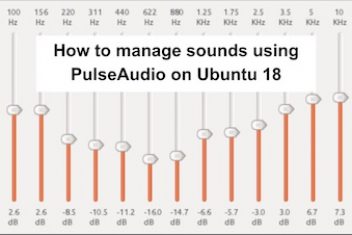NOTE: The actual contents and opinions are the sole views of the author who maintains editorial independence.
In the late 1960s, ATMs were deployed and it was clear that the jobs of bank tellers would become obsolete. However, since
2000, the bank teller employment rate has increased by an average of 2 percent. How did this happen? Due to the advent of technology, the overall operating costs of the banks have reduced which allowed them to open more branches. Thus, bank tellers didn’t lose their jobs – there was only a shift in the types of jobs and workload.
This story isn’t about bank tellers only. The nature of skills of the 21st era has changed all over. We don’t have to be alarmed by the fact that automation is replacing the new jobs – we should be worried that thousands of working class will not have the right skills for the new positions and appointments in the American economy.

Image Source: https://pixabay.com/illustrations/usa-us-flag-dream-spray-paint-1491752/
Lets see how automation has changed the American world and how we need to up-skill the workforce so that they can do their tasks and succeed in the new technological era.
Dynamic Economy Demands Dynamic Skills
The worker in the 21st century needs to possess the ability to learn new skills and adapt to the demands in the market. All American workers should have a basic skill set that will allow them to succeed in new, technical workplaces.
The age of today is calling for a skills revolution. The way we approach education along with training throughout the lifecycle to make sure that more and more Americans have the required skills to succeed today.
Read: Why business education is a good option for high school students
Personal Skills
Personal skills are those skills that help with the technical aspects, and help individuals as well as organizations to do their tasks smoothly. These are the skills that form the basis of the learning ability, how they motivate themselves and how they adapt to a dynamic task environment.
In the labor market of today, personal skills are highly important since robots and automatons can’t replace them. Soft skills such as communication, adaptability, professionalism, team tasks, etc. are very important, even more important than any job-specific or academic skills.
Thinking Skills
Jobs in the future will need dynamic thinking ability and skills that will allow an individual to solve problems, deal with new facts and information, and carry out new and non-routine tasks. Thinking skills are cognitive skills that show the individual’s ability to learn, reason, and apply all the acquired knowledge at different types of new positions and appointments.
Alongside personal skills, high-level cognitive and analytical skills are needed in the world of today. New positions and appointments that require analytical skills are growing in this era, and they are in the least danger of being replaced by technological aids.
Therefore, the workforce of today needs to be well-versed in these skills as well. After the industrial revolution, learning algorithms and advanced robotics increased the potential of a job for middle class workers.
Read: How to grow your digital brand in the physical world
Digital Skills
These skills are highly important in the workplaces of today since every organization and company uses tech in one way or another. New positions and appointments that use computers and other devices have been growing manifold and if humans are not taught digital skills, they will be left far behind in the fast-paced world of today.
Moreover, since tech is ever-evolving, the opportunities in this field are endless. If you read an essay about American dream, you would learn that from health care to teaching in colleges and schools, there is an ever-evolving and ever-increasing need for digital skills. If we don’t learn these skills, we risk losing everything, especially the United States dream.
Job-Specific Skills
Job-specific skills are those skills that you need to work for a particular job. These are also known as career skills or technical skills, such as those that are needed for engineering, math, scientific, or computer-related jobs.
Workers develop these skills usually through education or training programs that give credentials such as a license, degree, or certificate. These skills are also going to keep on increasing, particularly those jobs that need a high level of tech skills, such as artificial intelligence, machine learning, etc.
Every year, the income of a human toiling in the manufacturing industry is increasing even as things change over the passage of time and with technological advancement. We need to teach these skills at the university level to increase the income of humans and keep up with changing times.

Image Source: https://unsplash.com/photos/w0eMOcfV2MQ
Final Word
Skill development is very important if we want to succeed in these ever-changing tasks. It is necessary for schools, colleges, and universities to teach their students the necessary skills and requirements so that they can spend their lives in a fulfilling and successful way.
The answer to social and human progress is to streamline the learning process, stop teaching people high risk skills, and teach them skills that will be paying people for years to come. It is a very simple solution to deal with the ever-changing demands of today.
A dynamic world needs a dynamic learning system and that is where the education system needs to step up and take charge. From very early on in their lives, students need to learn about the skills that will get through life.
The obsolete teachings of the past no longer have a place in the modern world and that what we need to keep in mind if we want our workforce to be a motivated, progressive one.
If you like the content, we would appreciate your support by buying us a coffee. Thank you so much for your visit and support.



